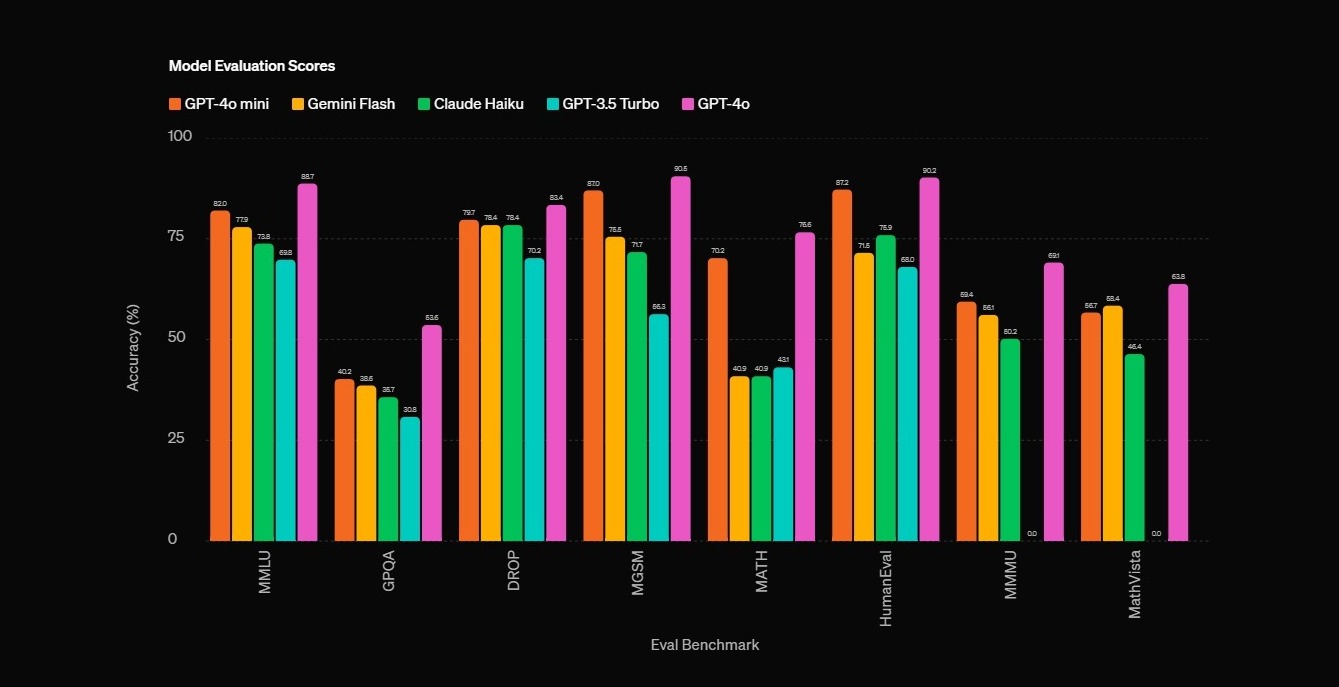OpenAI has introduced GPT-4o mini, its latest model aimed at making artificial intelligence more accessible and affordable. This new model, announced on July 18, promises to reduce costs while maintaining high performance, opening up new possibilities for developers and businesses alike.
GPT-4o mini is positioned as a cost-efficient version of the more powerful GPT-4o, with a pricing structure that makes it one of the most affordable models available. Specifically, it is priced at 15 cents per million input tokens and 60 cents per million output tokens. This is a substantial reduction compared to previous models, including GPT-3.5 Turbo, which was already considered economical.
Despite its smaller size, the GPT-4o mini does not compromise on performance. It scores 82% on the MMLU benchmark, which assesses a model’s ability to understand and reason through complex language tasks. This performance surpasses other small models like Gemini Flash and Claude Haiku.
OpenAI says that the mini version supports both text and vision in the API, with plans to extend this support to audio and video inputs and outputs. The model features a large context window of 128,000 tokens and can handle up to 16,000 output tokens per request, making it ideal for tasks that require extensive context, such as translating long documents or managing detailed conversation histories.
According to OpenAI, GPT-4o mini excels in reasoning, math, and coding tasks. It outperforms previous small models on benchmarks like MGSM, which measures math reasoning, and HumanEval, which evaluates coding proficiency. For instance, GPT-4o mini scores 87% on MGSM, compared to 75.5% for Gemini Flash and 71.7% for Claude Haiku.

Safety remains a top priority for OpenAI. GPT-4o mini incorporates the same rigorous safety measures as its larger counterpart, GPT-4o. These measures include filtering training data to exclude harmful content and using reinforcement learning with human feedback (RLHF) to align the model’s behavior with safety guidelines. Additionally, GPT-4o mini is the first model to apply the instruction hierarchy method, which enhances its resistance to security threats like jailbreaks and prompt injections.
Developers can now access GPT-4o mini through the Assistants API, Chat Completions API, and Batch API. It is available to free ChatGPT users and ChatGPT Plus and Team subscribers, with enterprise access rolling out next week.
